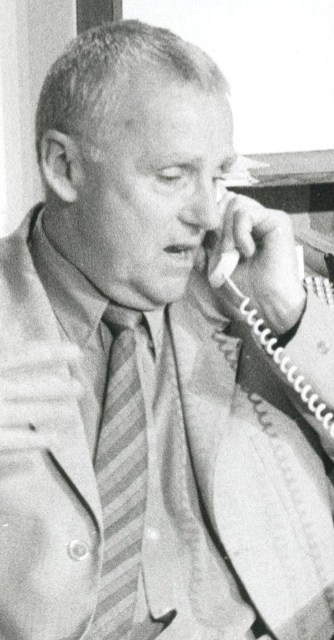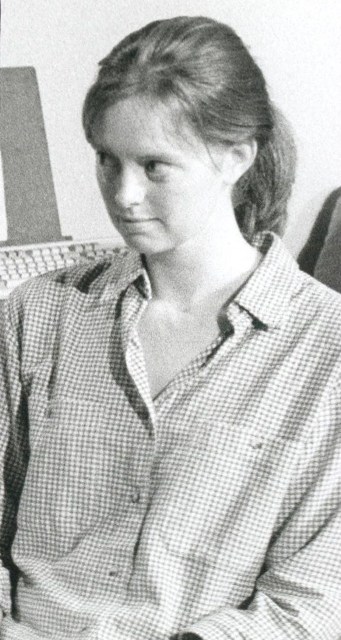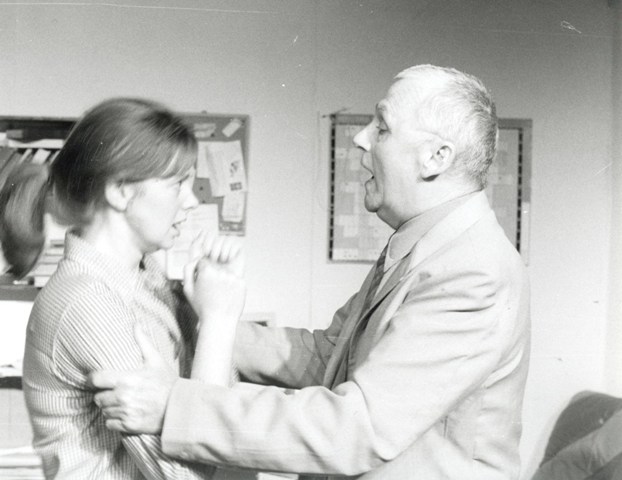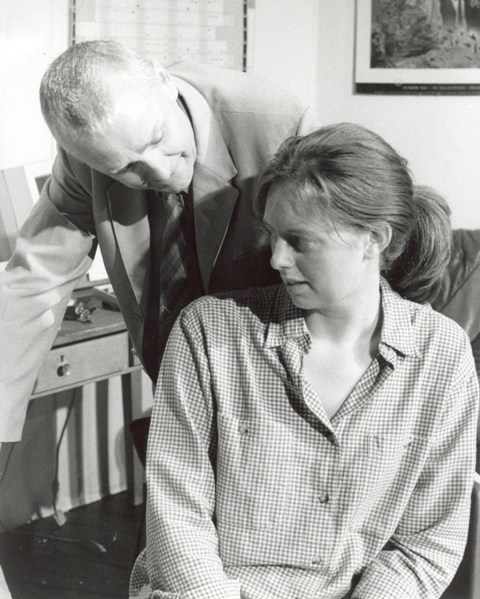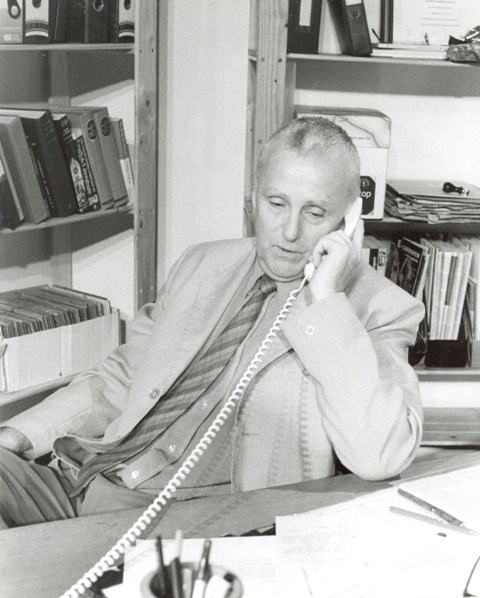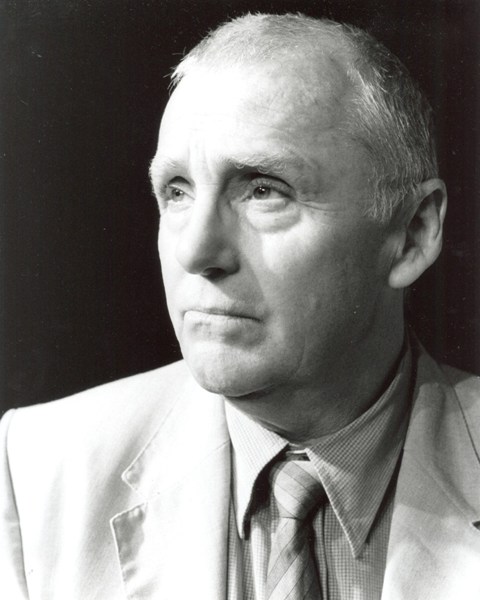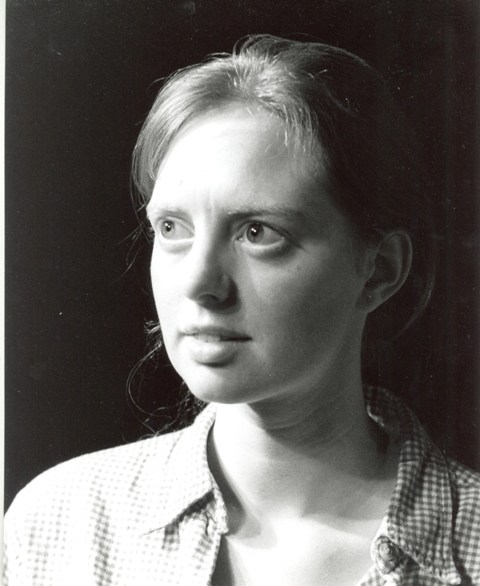The Bench Production
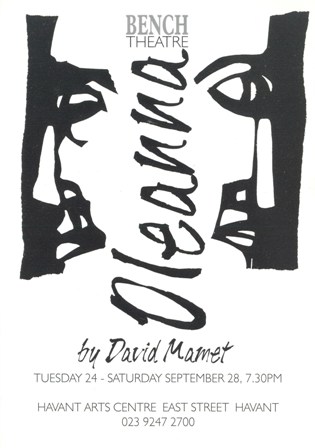
This play was staged at Havant Arts Centre, East Street Havant - Bench Theatre's home since 1977.
Characters
| John, a university professor | Pete Woodward |
| Carol, a student | Sam Emery |
Crew
| Director | Tim Taylor |
| Stage Management | Richard Le Moingan |
| Set Design | Tim Taylor |
| Lighting Design | Damon Wakelin |
| Lighting Operator | Robin Hall |
Director's Notes
After being a member of this company for over ten years, acting a bit, set building a lot and directing a few things elsewhere, this is the first production I have directed with the Bench. It has been a great deal of work and very rewarding.
First, I came to a terrible realisation a third of the way through our very first read through. I didn't want to direct this at all; I wanted to act in it. Fortunately by the time we reached the end of that evening, I had seen sense. The sheer volume of lines to be learned was so daunting that I was happy to stick with th easy route and direct it.
Second, working with so small a cast is a quite different business, and quite intimidating when they are both consummate actors and seasoned directors. Inevitably - and to great advantage with a play such as this - the production really does become an entirely joint effort. Everything that one actor does deeply affects the other one, and with only two characters, both of whom are on stage all the time, there are no scened where either actor can have a rest, or even take a back seat for a while. This is evident now, at the performance stage, but has applied equally all through rehearsal as well, making the rehearsals much harder work than in a "normal" play when every actor has breaks during those scenes in which they are not involved, when they can have a drink, review their own part, etc. Stupidly, I hadn't considered that.
Finally it becomes all consuming. This page was nearly entitled "Notes from the Director's Wife" because I'm sure she was bored to death with my twittering on about the ruddy play by the time I had decided - months ago - that, yes, I really would put it forward for selection. Since then, when every minute not spent on rehearsal is spent re-reading the text to see if there's something I've missed, or worrying about the set, the props, the programme, the publicity.
And the lesson from all this?
I want to do another one.
Tim Taylor
Reviews
The NewsMike Allen
Bench Theatre pairing spot on
The strength of David Mamet's play - the force of its argument about the gender war, power and the need for respect - is also its potential weakness. The two actors have to match up to make it a fair contest. But Bench Theatre has the answers.
Peter Woodward's portrayal of the teacher's relish of the performance aspect of his job is as impressive as his crumpling face and voice on recognising that power has been yielded to his student.
And Sam Emery's command of fractured dialogue portraying her anger and frustration is as potent as her ability to express a momentary feeling by a simple pursing of the lips. Watching her develop as an actress has been one of the pleasures of the amateur scene in recent years.
Tim Taylor could perhaps give her a little firmer direction at times in act two, but he has done well to create sufficient meaningful movement on the small acting space he uses - effectively close to the audience. And his transfer of the setting from America to Britain generally makes good sense. Until Saturday.
The News, 26th September 2002
